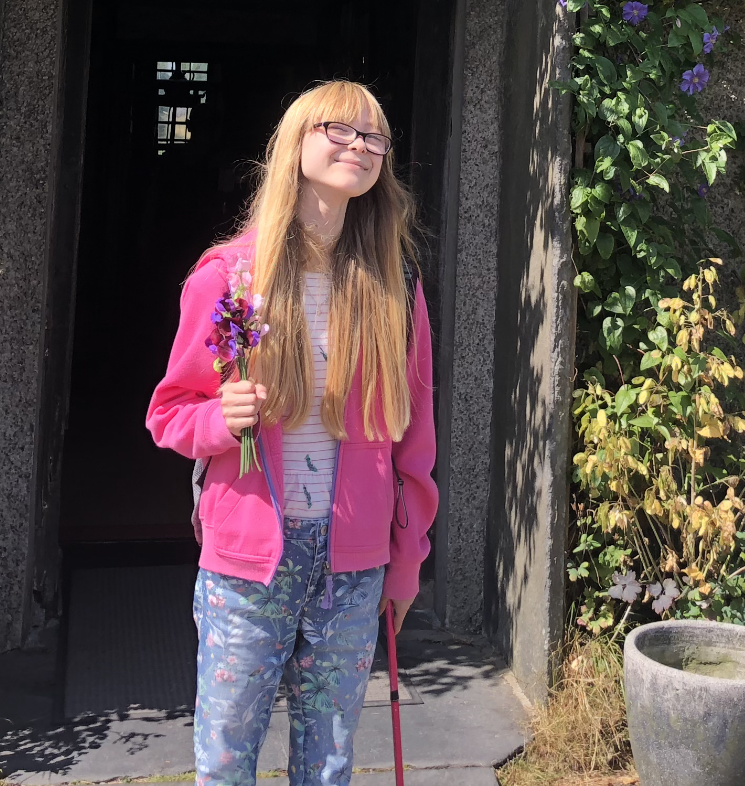Register as an organ donor
Record your decision to donate your organs
On World Sight Day (10 October), NHS Blood and Transplant needs to dispel five common myths around cornea donation and encourage people to give the gift of sight.
One in 10 people on the NHS Organ Donor Register have indicated that they do not wish to donate their corneas, making corneas the part of the body that most people say they do not wish to donate. (1)
This has contributed to NHS Blood and Transplant eye banks being 20% below the level needed to supply hospitals across the country. As of 24 September, there were 273 corneas in NHS Blood and Transplant’s eye banks. Our aim is to have 350 corneas in our eye banks at any one time to supply to hospitals.
NHS Blood and Transplant needs to urgently dispel five myths and misconceptions that are potentially preventing people from giving the gift of sight:
Fact: The eye is never transplanted whole (2). Only the cornea is transplanted. The cornea is the clear outer layer at the front of the eye that helps the eye to focus light. The sclera which is the white part of the eye, can also be donated to help people.
Fact: Unlike with organ donation, you don’t have to donate immediately and you don’t have to die in a hospital. You can donate your corneas up to 24 hours after you die and donation can take place after death in hospital, in hospices, or in funeral homes.
Fact: People with poor eyesight can still donate their corneas.
Fact: People with most types of cancer can still donate their corneas. The corneas do not contain blood vessels, eliminating the risk of transmitting most types of cancer.
Fact: After donation, our specialist team will ensure the donor maintains a natural appearance. Cornea donation does not delay any funeral arrangements.
16-year-old CBeebies star Angharad Rhodes from Anglesey had a cornea transplant in 2016. She was born with cataracts in both eyes and a condition called microphthalmia, when the eyes stop developing during pregnancy.
 After extensive testing, Angharad was diagnosed with a very rare condition called oculofaciocardiodental syndrome (OFCD), occurring in less than one in a million births, which affected her eyes, facial features, heart and teeth.
After extensive testing, Angharad was diagnosed with a very rare condition called oculofaciocardiodental syndrome (OFCD), occurring in less than one in a million births, which affected her eyes, facial features, heart and teeth.
Angharad underwent multiple surgeries to try and lower the pressure in her eye. Mum Lynda said: “The doctors decided to insert a mechanical valve in her eye to keep the pressure down. This operation involved using a cornea from a donor.
“As a family we are so thankful that someone chose to donate their cornea. It has simply allowed my daughter a chance to keep the light perception she has to help her in life. Words can’t express how thankful I am.
“It’s such a shame that myths put people off donating. I know some people are squeamish but cornea donation is about the gift of sight.”
Angharad plays Melody, a partially sighted character who explores music through her imagination in the CBeebies programme Melody.
Lynda said: “By having a cornea transplant, Angharad has kept her light perception and enjoyed filming a third series of Melody. Angharad now hopes to help to inspire children and adults in her role as Melody and as an advocate for Live Life Give Life.”
Helen Gillan, General Manager for Tissue and Eye Services at NHS Blood and Transplant, said: “This World Sight Day, too many people will be unable to see their loved ones due to a national shortage of donors.
“We need 70 donations a week to meet the demand for sight saving transplants, but there is a regular shortfall in donations. We understand that people often view the eyes with more emotion and see them as more symbolic than other parts of the body.
“But there are several misconceptions about cornea donation and we hope by addressing these, we can encourage more people to become donors. You can help us by saying yes to cornea donation and giving the gift of sight to another. Donating sight means there can be light after darkness.”
Dr Neil Ebenezer, Director of Research, Policy and Innovation at Fight for Sight, said: “Our research has shown that people are less likely to donate their corneas than other organs, so we want to raise awareness of the precious gift of sight that you can give by donating your corneas after you die.
“When people are made aware of the current deficit and the life changing potential of cornea donation, over half of them change their minds and say they would consider donating their corneas after their death.”
Over the last year, 3,897 people in England have had their sight restored through cornea transplants. One donor can help up to 10 people, helping restore or improve their vision and allowing them to see their friends and family properly again.